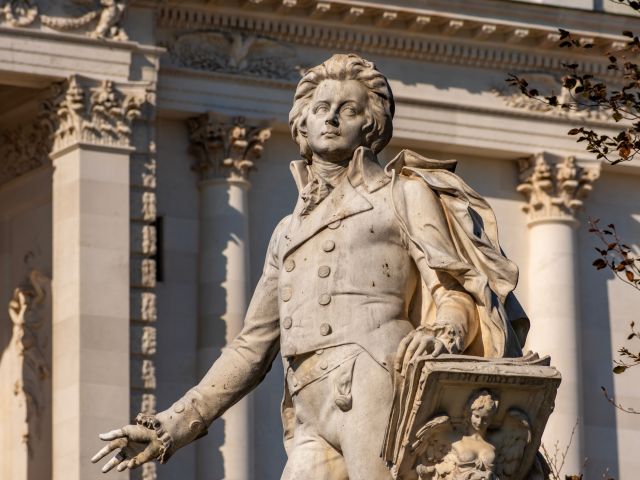Ancient and New Classics: The University of Bologna Launches Its Fall Event Series

The fall event series, "Ancient and New Classics: The Knowledge of the University of Bologna", will kick off with four events running from Thursday, 17 October, to Thursday, 12 December. The series will take audiences on a journey where creativity and innovation bridge the gap between past and present, with the goal of sharing human knowledge. Through diverse disciplines, the events will delve into universal themes that link different times and cultures.
The first event, "Thank You, Marconi!", will be held on 17 October at 8:30 p.m. Organized by the Departments of Medical and Surgical Sciences, Electrical Energy and Information Engineering "Guglielmo Marconi," Industrial Engineering, and Civil, Chemical, Environmental, and Materials Engineering. Held at the Oratorio di San Filippo Neri – part of the LabOratorio programming, curated by Mismaonda with the Fondazione del Monte di Bologna e Ravenna – actors Umberto Fiorelli and Donatella Allegro will perform a show whose subtitle, "From Telecommunications to Telemedicine," highlights the modern relevance and complexity of the discoveries made by the Bolognese entrepreneur, scientist, and inventor.
In an imagined TV studio, Marconi tells his story during an impossible interview. A modern-day journalist, aided by video projections, presents Marconi with the key technologies derived from his inventions. The script is by Claudio Cumani, directed by Sandra Bertuzzi, with videos produced by Visual Lab and the event production by Mismaonda.
"The Rhetoric of Crisis: Between Doubt and Trust" will enliven the Aula Poeti in Palazzo Hercolani at 6:00 p.m. on 14 November. The event is organized by the Departments of Political and Social Sciences, Economic Sciences, Sociology, and Economic Law. Nadia Urbinati (Columbia University) and Michele Alacevich (University of Bologna) will discuss freedom and the importance of politics free from dogma in an era of increasing authoritarianism and intolerance.
Starting from the antifascist and pro-European experience of economist Albert Hirschman and his sister Ursula Hirschmann, and with the collaboration of actor Massimo Don and graphic facilitator and illustrator Edo Massa, Urbinati and Alacevich will reflect on resistance as a foundation of individual freedom, the value of doubt in public discourse, democracy as an open and dynamic process, and the role that focusing on what is possible—not only what is probable—plays in social change processes.

Mozart will take centre stage for the third event, scheduled for 6:00 p.m. on 5 December in the Aula Absidale di Santa Lucia. Titled "Così fan tutte: Mozart and the Soundscapes of His and Our Time", the evening is curated by the Departments of the Arts, Classical Philology and Italian Studies, and the La Soffitta Centre. Through the lenses of art, music, and literature, the event will examine the relationship between the works of the composer, an essential figure in Europe's artistic and musical heritage, and the soundscape of his era. Mario Tronco will engage in discussion with Professors Nico Staiti and Nicola Badolato (Department of the Arts) and Francesco Ferretti (Department of Classical Philology and Italian Studies).
The evening will also feature screenings of excerpts from "The Magic Flute According to the Orchestra of Piazza Vittorio" (directed by Gianfranco Cabiddu) and a performance of "Don Giovanni According to the Orchestra of Piazza Vittorio". The night will conclude with a performance of "Così fan tutte" by the Duo Ebbanesis (arranged by Mario Tronco), accompanied by mandola and guitar. These works reinterpret Mozart's music in a modern and updated way, bringing forward the rich soundscapes present in his works, yet less apparent to today’s listeners.
The final event, "Thinking Machines? Literature, Science, and Primo Levi", will take place on Thursday, 12 December at 6:00 p.m. in the Aula Absidale di Santa Lucia, with professors from the Departments of Physics and Astronomy "Augusto Righi", Chemistry "Giacomo Ciamician", Industrial Chemistry "Toso Montanari", Biological, Geological and Environmental Sciences, Mathematics, Pharmacy and Biotechnology, Sciences for Quality of Life, and Classical Philology and Italian Studies. The event will explore the question first posed by Alan Turing, the father of artificial intelligence, in 1950: Can machines think? Ten years later, author Primo Levi imagined a machine not only capable of thinking but also feeling emotions. Levi's Versificator, created and marketed by an American company, was programmed to compose in any language, literary genre, style, or meter from any era (barring any unexpected glitches).
So, can machines really think? And if so, what promises and dangers do they hold for us? What impact might they have on our lives and language? As a writer profoundly shaped by his experience at Auschwitz, Primo Levi explored the freedoms and paradoxes of what technology could achieve through his science-fiction inventions. His Versificator is a new classic that poses even newer questions—questions that are becoming increasingly relevant today and will continue to shape the future. Brought to life on stage, the Versificator will ignite a debate among experts in artificial intelligence, literature, and science communication, with illustrations by "Cartoni Morti" enhancing the performance and discussion.






